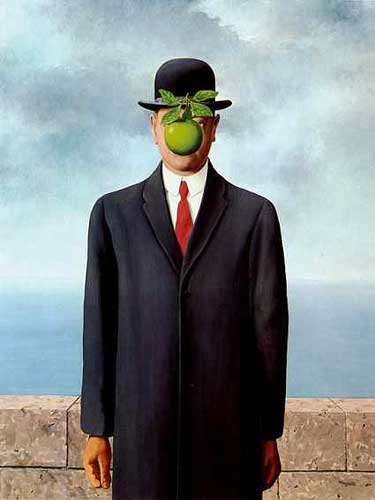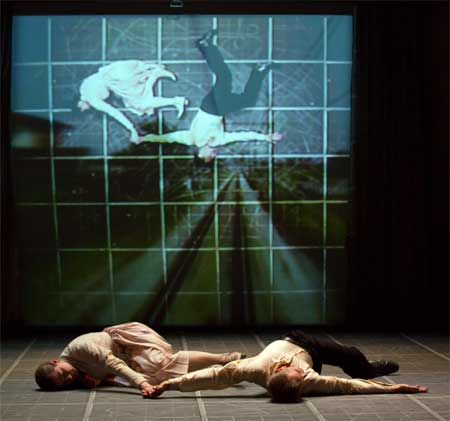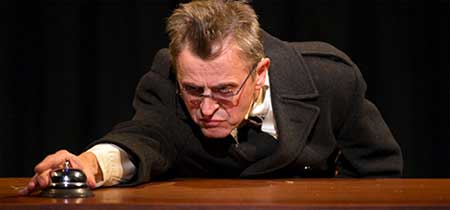Play, Performance, Dance
Adapted from two short stories by Anton Chekhov,
Man In A Case and About Love,
and directed by Paul Lazar
and Annie-B Parson / Big Dance Theater
Choreographed by Annie-B Parson
Baryshnikov Productions
ArtsEmerson
Cutler Majestic Theater, Boston, MA
February 25 – March 2, 2014
Set Designer: Peter Ksander; Lighting Designer: Jennifer Tipton; Sound Designer: TI Blow, Video Designer: Jeff Larson
With Mikhail Baryshnikov (Belikov), Tymberly Canale (Barbara), Chris Giarmo (Ivan), Paul Lazar (Burkin) Kovalenko (Aaron Mattocks)

The evening is short – just an hour and fifteen minutes all told, without intermission – but it is chock full of sensory input.
The approach to Chekhov here is collage-like and comprised of varied events, images, sounds interacting, intersecting and sometimes coming together to provide a focused sense of action. The result is interesting and stimulating – and a bit chaotic for much of the time, though that does not really seem to matter. The end result is a poignancy that the chaos frames well, the mission of the chaos appearing finally as an expedient means for delivering the result.

Mikhail Baryshnikov as Belikov
in “Man In A Case”
Photo: T. Charles Erickson
Courtesy of ArtsEmerson
An insistent use of projected video on many of the available stage surfaces provides a continuing sense of movement; there is varied and interesting music throughout. Perhaps one of the most penetrating musical moments involves a vocal trio of Slavic harmonies, arresting in its beauty and intensity. Even an accordion appears briefly.
It is, of course, a thrill to see Mikhail Baryshnikov onstage. He is a good actor and conveys the sense of isolation and despair in his principal characters very well. It is odd to see him, so naturally graceful and dashing, embody the uptight schoolteacher Belikov, but he makes it quite convincing. He also does a dance turn or two – nothing extensive enough to dwell upon – but it is nice to see him acknowledge his balletic side and of course great to watch him move.
When Chekhov plays are done straight and naturalistically, there is always the danger that a prevailing sense of ennui will consume everything in sight. It takes a particularly adept director to ensure that the interactions of the dramatic lines are sculpted carefully and sharply, providing enough collective punctuation to offset the potential doldrums Chekhov can incur.

in “Man In A Case”
Photo: T. Charles Erickson
Courtesy of ArtsEmerson
Here, in these adapted stories, the approach is non-naturalistic, at the expense of straight narrative. But, the payoff comes at the end when the poignancy of the result is offset from the relative jumble of the presentation. That jumble, then, seems like a useful trick, a method to build up to a conclusion with condensed affect and which, in its final dramatic focus, gives a feeling for the heartbreak at which the stories aim. In the end, it is a worthwhile price to pay.
For some reason, this show comprises only two of the three stories in the original Chekhov collection. With just two of them, the evening is just a bit too short. It seems that adding the third might be a way to fill it out and give it a bit more substance and girth.
– BADMan
Leave a Reply